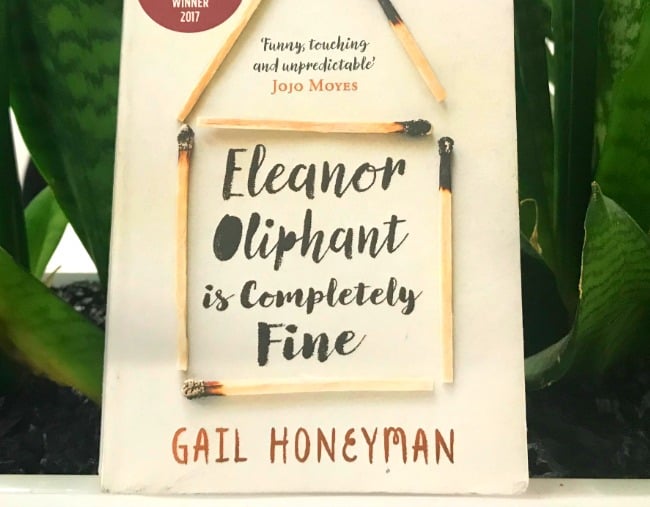
SPOILER ALERT: If you haven’t read ‘Eleanor Oliphant is Completely Fine’ and intend to, do not read on. This is, after all, an article about the ending.
When I finally opened up my copy Eleanor Oliphant is Completely Fine on holiday last week, I was pumped to sink my teeth in. I’d heard nothing but good things – from friends, colleagues and many, many Facebook posts.
Largely, I devoured it. Thirty-year-old Eleanor is a fiercely independent, curious character you slowly grow to love.
Every week of her life in Glasgow plays out exactly the same. She works an uninspiring office job Monday to Friday, she takes 15 minutes every Wednesday evening to speak with her imprisoned ‘Mummy’ on the phone, and she spends her weekends cooped up inside her tiny apartment eating supermarket pizza washed down with two bottles of vodka. She is a woman who avoids social contact, who loves her houseplant named Polly, who has the most terrific vocabulary but doesn’t recognise massive pop culture references (such as Top Gear, SpongeBog Squarepants and ‘mofo’), and who thinks ‘Bobbi Brown’ is lazy for never showing up to work.
It quickly becomes clear she is absolutely not ‘completely fine’. She is profoundly lonely. (“I took one of my hands in the other, tried to imagine what it would feel like if it was another person’s hand holding mine. There have been times where I felt that I might die of loneliness.”)
That is, until she meets Raymond, who shows her the importance of kindness and, most crucially, her life can be much happier – she deserves it.


Top Comments
I agree that the “twist” was unnecessary and jarring. It also leads me to wonder: why does Eleanor need to change her last name for protection if there is no Mummy? Why was she moved to Glasgow for her protection too? Why didn’t any of her foster parents notice that she was having conversations with her nonexistent mother? I would have preferred her final goodbye to Mummy to be real and a healthy new boundary in her life instead of thinking her insanity was more severe and completely unnoticed by everyone.